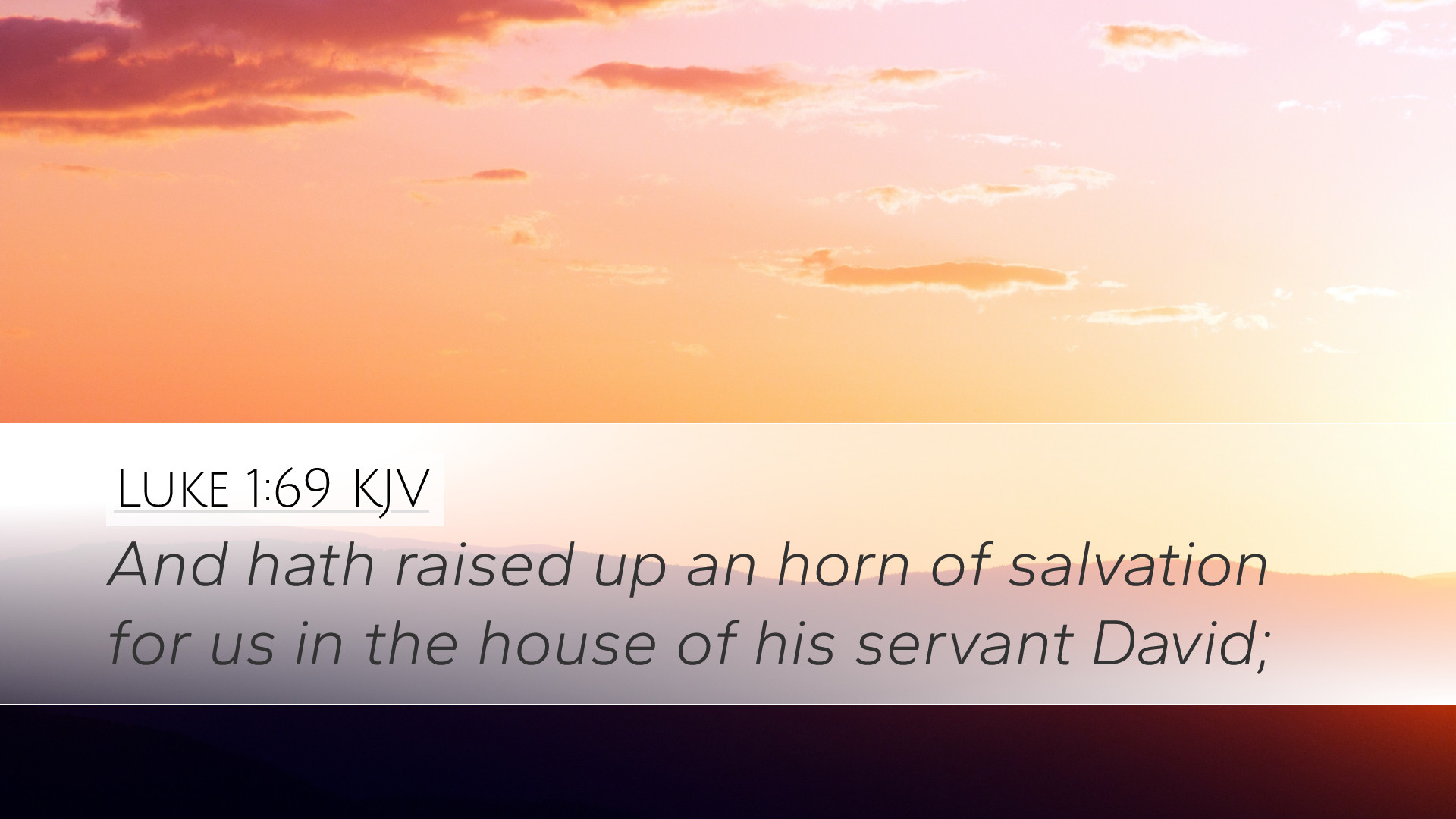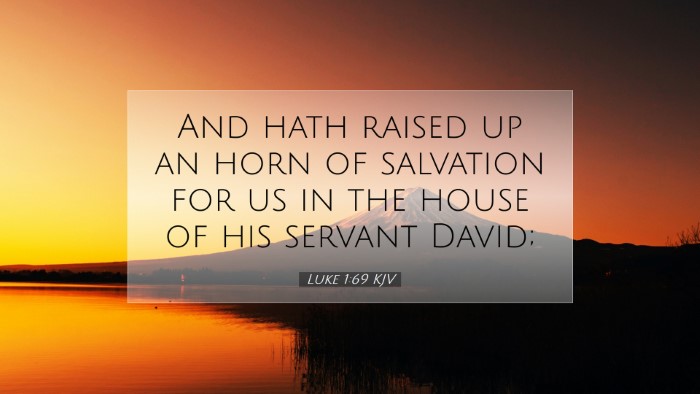Commentary on Luke 1:69
Luke 1:69 states: "And hath raised up an horn of salvation for us in the house of his servant David." This verse is part of the song of Zechariah, a prophecy that reveals the foundational role of Jesus Christ in God's plan of salvation. The imagery of a "horn" signifies strength, power, and authority.
Theological Significance
The phrase "horn of salvation" implies that Jesus is both a deliverer and a source of strength. This concept resonates deeply within the theological frameworks of salvation history. Matthew Henry notes that the "horn" symbolizes the mightiness of God's salvation, indicative of God’s empowerment in the believer's life.
Contextual Analysis
To grasp the essence of this verse, it is crucial to explore its context within the Gospel of Luke. Zechariah, filled with the Holy Spirit, proclaims this message after the birth of his son, John the Baptist. The immediate context surrounding this verse emphasizes God's faithfulness to His promises and the unfolding of His redemptive plan through Jesus Christ.
Historical Background
Albert Barnes highlights that the phrase "the house of his servant David" links the promise of salvation directly to the Davidic Covenant, where God promised an everlasting kingdom through David's lineage. This underscores the fulfillment of Old Testament prophecies concerning the Messiah, affirming Jesus’ rightful place as the Savior from the house of David.
Comparison with Other Texts
In a broader biblical context, the "horn" is often associated with strength and kingship. For example, Psalm 18:2 states, "The LORD is my rock, and my fortress, and my deliverer; my God, my strength, in whom I will trust; my buckler, and the horn of my salvation." Adam Clarke elaborates that the metaphor of the horn conveys both the might of God and the assurance that salvation is derived from His powerful intervention in human affairs.
Exegetical Insights
Examining the original Greek text can yield further insights. The word used for "raised up" (Greek: exegerthe) indicates both elevation and divine intervention. It emphasizes that this act of raising up a savior is not merely a human endeavor but a significant act of God. This nuanced understanding calls theologians to reflect on the sovereignty of God in the redemptive process.
Implications for Believers
The proclamation of the "horn of salvation" carries profound implications for believers today. It emphasizes that salvation is not only accessible but also comes with divine empowerment. Pastors and church leaders can draw upon this truth to encourage congregations to rely on God's strength in their spiritual journeys.
Practical Application
- Hope and Assurance: Emphasizing God's commitment to salvation can instill hope in the hearts of believers confronting life's challenges.
- Faithfulness to Promises: This text serves as a reminder of God's faithfulness to His promises, encouraging believers to trust in Him during uncertain times.
- Empowerment for Service: Understanding Jesus as the "horn of salvation" equips believers for service, knowing they operate under the strength of Christ.
Conclusion
Luke 1:69 encapsulates the essence of God's redemptive plan through the presentation of Jesus Christ as the "horn of salvation." This powerful imagery not only affirms the authority of Christ as the Savior but also reassures believers of God's unwavering involvement in their lives. As pastors, students, and theologians reflect on this verse, they are encouraged to explore the deep well of meaning found within its words, both for teaching and personal edification.


